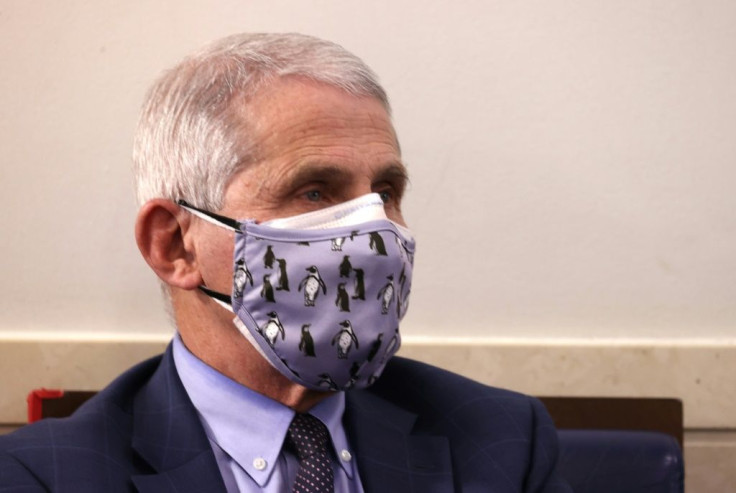COVID Vaccine Rollout: Is Operation Warp Speed On Track For 2021?
KEY POINTS
- CDC finds federal efforts are far short of expectations
- Trump says it’s a state-level problem
- Fauci says the effort so far has been ‘disappointing’
With inoculations against COVID-19 moving forward at a slower than expected pace, Dr. Anthony Fauci, the top infectious disease expert in the United States, said the effort so far has been “disappointing.”
Operation Warp Speed, the federal program steering the vaccination effort, set a goal of having 20 million people inoculated with the first shot of a two-dose program by December. The Centers for Disease Control and Prevention found, however, that only 2.8 million of the 12.4 million doses allocated across the country have actually been administered.
Appearing Thursday on NBC’s “Today” show, Fauci said he hoped the campaign would pick up the pace in the first weeks in January.
“We would’ve liked to have seen it run smoothly and have 20 million doses into people today, by the end of the (year) 2020, which was the projection,” he said. “Obviously, it didn’t happen and that’s disappointing.”
In an appearance on CNN, Dr. Paul Offit, a member of the FDA’s vaccine advisory committee, echoed Fauci’s sentiment by saying Operation Warp Speed was falling short of expectations.
At the state level, New York City Mayor Bill de Blasio in a video message said he was planning for a mass vaccination campaign using schools, community centers and other facilities as temporary clinics.
“It’s going to take a lot of work,” he said. “It’s going to take tremendous urgency and focus and we will need help from the federal government.”
The challenges are nation-wide. A tally compiled by The New York Times finds North Dakota leads the nation with more than 48% of its doses injected. Kansas is near the bottom with 11%.
The Times reports some of the problem may rest in seasonal vacations at healthcare facilities that may already be operating at reduced hours.
Dr. Ashish Jha, the dean of Brown University’s School of Public Health, told the newspaper the federal government has largely left it to overwhelmed local health officials to take up the task of vaccination.
“We’ve taken the people with the least amount of resources and capacity and asked them to do the hardest part of the vaccination -- which is actually getting the vaccines administered into people’s arms,” he said.
President Donald Trump said earlier this week the federal government was responsible for developing vaccines and facilitating the distribution to states.
“It is up to the States to distribute the vaccines once brought to the designated areas by the Federal Government,” he said Tuesday from his Twitter account.
The CDC, however, notes the Trump administration has yet to establish partnerships with major pharmaceutical retailers such as CVS or Walmart to help get shots in people’s arms.
Luciana Borio, a top infectious disease expert tapped by President-elect Joe Biden to serve on his COVID-19 task force, said state control was important, but it required assistance at the federal level.
“I get the idea of having states having some autonomy over vaccination, but that doesn’t mean that we’re just going to drop a bunch of vaccines at their sites and let them deal with it,” she told CNBC on Wednesday.

© Copyright IBTimes 2025. All rights reserved.





















